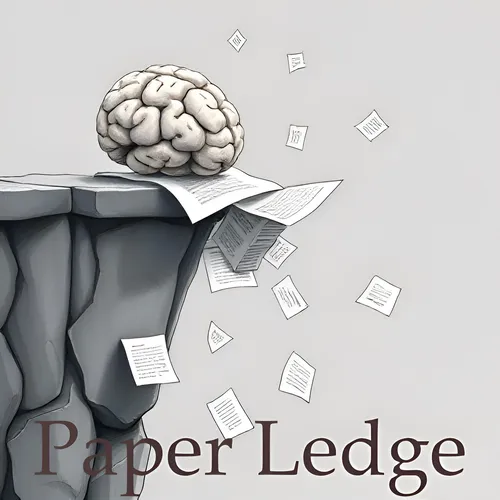Computers and Society - The Problem of Atypicality in LLM-Powered Psychiatry
- Author
- ernestasposkus
- Published
- Mon 11 Aug 2025
- Episode Link
- https://www.paperledge.com/e/computers-and-society-the-problem-of-atypicality-in-llm-powered-psychiatry/
Hey PaperLedge crew, Ernis here, ready to dive into another fascinating piece of research! Today, we're tackling a topic that's becoming increasingly relevant in our AI-driven world: the use of large language models, or LLMs, in mental health.
Now, you've probably heard of LLMs like ChatGPT – these are the AI models that can generate text, translate languages, and even write different kinds of creative content. The idea is that they could potentially help address the global mental health crisis by providing scalable support and information. Think of it as a readily available virtual assistant offering guidance or just a listening ear. Seems promising, right?
But here's where things get tricky. This paper highlights a really important ethical concern they call the problem of atypicality.
Essentially, LLMs are trained on massive datasets of text. They learn what's "normal" or "typical" based on what they see in these datasets. They’re like that friend who always gives generic advice because they only see things from a mainstream perspective. But what happens when someone’s thinking patterns or interpretations of the world are... well, atypical? What if they don't fit the mold?
Think about it this way: Imagine you're using a navigation app. It usually gives you the best route, right? But what if a bridge is out, and you need to take an unusual detour? The app, based on its typical data, might steer you wrong. Similarly, an LLM might provide responses that are generally appropriate, but completely unhelpful, or even harmful, to someone with specific mental health challenges or unusual cognitive patterns.
"Because LLMs generate outputs based on population-level statistical regularities, their responses -- while typically appropriate for general users -- may be dangerously inappropriate when interpreted by psychiatric patients."
The researchers argue that simply tweaking the prompts we give the LLM or fine-tuning the model isn't enough to solve this problem. These are like putting a band-aid on a much bigger issue. The core problem is that LLMs are inherently designed to cater to the "average" user, which can be dangerous in a context where people are not average.
So, what's the solution? The researchers propose something called Dynamic Contextual Certification (DCC). It's a mouthful, I know! But the core idea is actually pretty cool.
Imagine deploying an LLM in a psychiatric setting not as a finished product, but as an ongoing experiment. It's like a staged rollout, similar to how new medications are tested and introduced into clinical practice. It’s all about being careful, reversible, and constantly monitoring the context.
- Staged: Introduce the LLM gradually, starting with low-risk scenarios.
- Reversible: Have a plan to pull back the LLM if things aren't working as expected.
- Context-Sensitive: Continuously monitor how the LLM's responses are being interpreted by individuals in specific situations.
DCC emphasizes interpretive safety above all else. It's about prioritizing how the LLM's responses are being understood by the user, rather than just focusing on whether the LLM is technically "correct" in its output. It treats the deployment of the chatbot as an ongoing learning process rather than a one-time event.
They argue that we can't eliminate atypicality entirely, but we can proactively manage it. Think of it like driving a car: you can't eliminate the risk of an accident, but you can take precautions like wearing a seatbelt and driving defensively to minimize that risk.
So, why does this matter? Well, for mental health professionals, it highlights the need for caution and careful monitoring when integrating LLMs into their practice. For AI developers, it emphasizes the importance of considering the diverse needs and interpretations of users, especially those with atypical cognitive patterns. And for everyone else, it raises awareness about the potential pitfalls of relying too heavily on AI-generated advice, especially when it comes to sensitive issues like mental health.
Now, this paper really got me thinking. A couple of questions popped into my head. First, how do we even define "atypical" in a way that’s both scientifically sound and ethically responsible? And second, how can we design LLMs that are more sensitive to individual differences without sacrificing their overall helpfulness?
I'd love to hear your thoughts on this too, crew! What do you think? How can we ensure that these powerful AI tools are used responsibly and ethically in the realm of mental health? Let's discuss in the comments!
Credit to Paper authors: Bosco Garcia, Eugene Y. S. Chua, Harman Singh Brah
